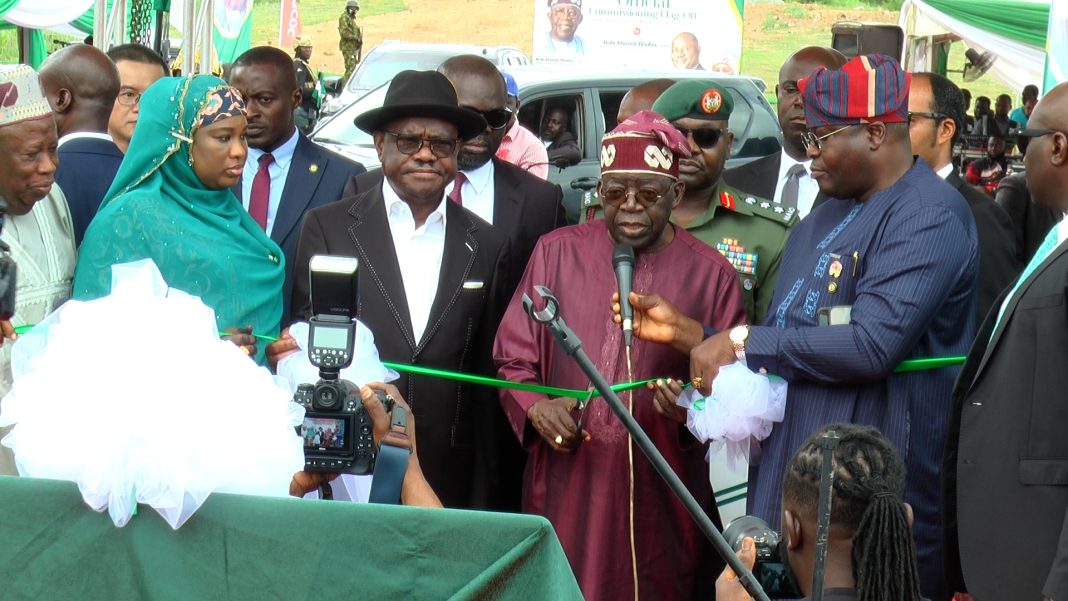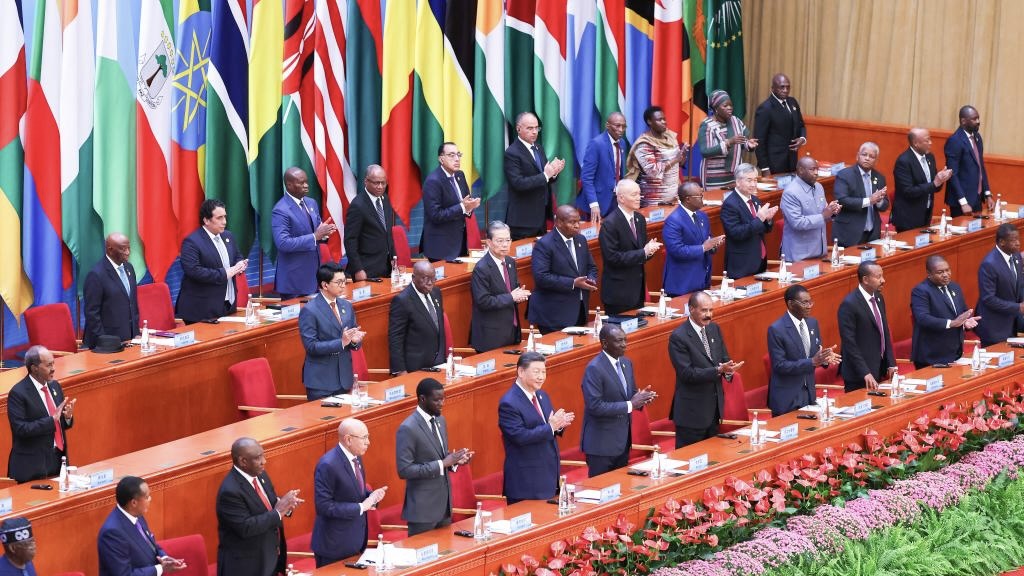President Bola Tinubu on Monday commissioned Loops 1, 2, 5, and 6 of the Greater Abuja Water Supply Network, a project designed to enhance water access across the Federal Capital Territory (FCT).
Built by CGCOC Group Limited, the $470 million project was funded through a tripartite agreement, with China’s Exim Bank contributing 85% and the Federal Government and FCT Administration covering the remaining 15%.
Speaking during the commissioning ceremony on Airport Road, Abuja, President Tinubu described the water network as a transformative effort to guarantee safe, sustainable, and sufficient water for homes, institutions, and communities across the capital city.
“Water is life, not a luxury. It is a fundamental human right and a cornerstone of public health, urban development, and economic growth.
“When we speak of the Renewed Hope Agenda, we mean tangible, people-focused projects that improve the daily lives of ordinary Nigerians. Water to drink, to clean, to grow, to build. That is a real project. It’s a treasure that we always take for granted,” he said.
President Tinubu thanked the Federal Capital Territory Administration (FCTA), led by Minister Nyesom Wike, international development partners, especially the Chinese Government and CGCOC Group Limited, for their collaboration on the project. He urged all residents and stakeholders to safeguard the infrastructure.
In his remarks, FCT Minister Nyesom Wike announced plans to extend water infrastructure to underserved rural areas, including Bwari, Kuje, and Karu.
“Following your visit to China last year, Mr. President, we signed an agreement with CGCOC to provide water to satellite towns. Procurement is nearly complete, and we are committed to swift delivery,” he said.
Earlier in his remarks, Zhong Xiang, Managing Director of CGCOC Group, noted that the project, initiated in 2017, has boosted the FCT’s water supply capacity from 240,000 to 750,000 cubic meters, benefiting over 3 million residents. He noted that the initiative also created over 3,000 jobs and trained more than 1,000 local technicians in water supply and pipeline systems.
The new loops will enhance access to potable water across 50 districts in Phases Two, Three, and Four, covering the FCT’s northern and southern development corridors.





